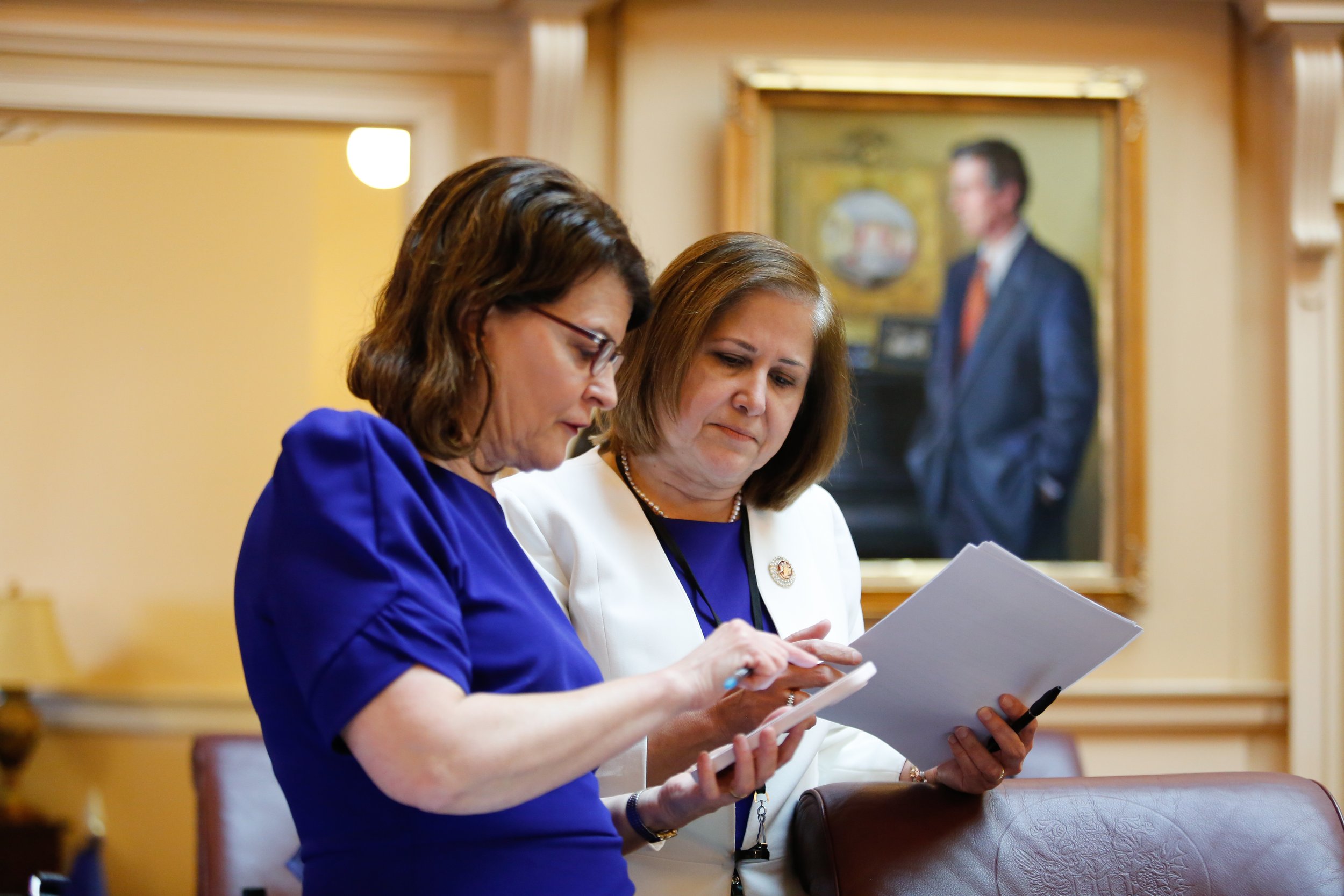Week 8 - Democratic Bills Hit the Governor’s Desk
Sunday, March 3, 2024
Senator Favola speaks on the Senate Floor
Dear Friend,
About one week remains in the 2024 regular General Assembly session. With Democrats controlling both chambers, we should be able to finish on time and deliver a budget to the governor. I expect the veto session to be robust and full of negotiations. The budgets passed by the respective chambers do not include the governor’s tax cuts or his proposed increases in the sales tax.
Overview:
I am proud to note that three of my bills are among the 25 most “clicked” bills on the General Assembly website. The three bills are: 1) Protecting companion animals and equines from those who have been convicted of felony animal cruelty, 2) Protecting menstrual health data from law enforcement and, 3) Protecting individuals who have an abortion in Virginia and the healthcare professionals who provide them with abortion care from extradition to another state.
Of all the senators, I’ve had the most number of bills pass both chambers. I attribute this to the fact that I garner consensus around the problem I’m trying to solve early in the development of my bills. This strategy makes educating lawmakers easier and facilitates buy-in when it comes time to vote on the bill. Of course, bills that Republicans believe are detrimental to their philosophical platform or could harm them with their base voters don’t pass with bi-partisan support.
Noted below are updates on bills of interest and additional bills that I sponsored and are on their way to the governor’s desk:
Skill Games:
After COVID, the General Assembly reinstated the ban on slots-like skill games. Restaurateurs and convenience store owners lobbied aggressively to have the ban removed arguing that the revenue obtained from the skill game machines was critical to their survival. I do acknowledge that there are revenue benefits to the state through a regulated framework for the skill gaming industry. However, church clubs and safety-net providers cautioned lawmakers about the lure such machines have for those who are least able to afford gambling.
Nonetheless, legislation passed the General Assembly which legalizes the machines. The legislation includes a 25% tax rate on the machines’ gross receipts. It also allows up to four gambling machines in businesses licensed by the Virginia Alcoholic Beverage and Control Authority (ABC) and up to 10 machines at truck stops. Skill games would initially be licensed by ABC and would then transition to a fuller regulatory structure in 2027 under the Virginia Lottery Board.
I voted against the final piece of legislation because of the negative social impacts, the likely inability to successfully regulate the industry, and the potential for underage usage. Moreover, I have never believed that vice taxes are the best way to fund our core services. A much more sustainable approach is reforming Virginia’s income tax structure. There is a study committee charged with developing recommendations for tax reform. I hope we have a governor in 2026 who is willing to tackle this issue.
Protection from Financial Abuse:
My bill (SB174) and the House companion bill carried by Delegate Maldonado are designed to create uniform training guidelines for financial institutions to enable employees of these institutions to spot and report financial abuse. As part of the training, bank employees will be advised to contact a trusted person listed on a customer’s account if they suspect financial exploitation or, if that trusted person is a suspect, to contact another relative or trusted person. In exchange, banks and credit unions that undergo this training will be immune from any civil liability for disclosing their concerns to the proper authorities. I am incredibly proud of this legislation and I fully expect the governor to sign these bills.
Senator Favola speaking with Senator Hashmi (above) and Senator Salim (below)
Family Caregivers and Medicaid Waiver Patients:
I am proud to say that, in my role as a member of the Senate Finance and Appropriations Committee, I shepherded through legislation to halt the promulgation of regulations by the Department of Medicaid Services (DMAS) that would have required family caregivers to prove that no other caregiver was available to care for their loved one in order to be eligible for Medicaid waiver reimbursements. This requirement is known as the Legally Responsible Individual requirement. Hours before the new regulations were set to take effect on Friday, DMAS halted most parts of the new regulations for caregivers that it had announced last year. Under the new legislation, that we expect the governor to sign, DMAS must now submit a request to the federal Centers for Medicare and Medicaid asking for a waiver from the Legally Responsible Individual requirement. That requirement has been one of the most frequent concerns voiced by families and individuals needing in home care.
More of My Bills That Passed and Are Going to the Governor:
SB51 Ensures online resources for youth with disabilities transitioning to adulthood.
SB87 Encourages doctors to refer patients to mental health resources.
SB125 Adds one member from the respective money committees to the Behavioral Health Commission.
SB 220 Creates Individualized Education Program (IEP) reform that includes more parent resources and financial support to school systems (I will provide more detail on this bill in next week’s email blast).
SB98 Prohibits health insurers from revoking approval for prescription drugs once they have been ordered or delivered.
Cannabis Bill:
This bill came through the Rehabilitation and Social Services Committee and, as chair of that committee, I played a key role in crafting a compromise with our House colleagues. Essentially, the legislation creates a retail market for marijuana and establishes an “Equity Trust Fund.” Retail sales would begin on May 1, 2025. Localities could opt out of the retail market by holding a referendum. The bill caps the number of licenses at 400 across the Commonwealth and requires that license fees and taxes in the first year be deposited in the Equity Trust Fund. This Fund will allow economically disadvantaged entrepreneurs access to capital so that they can compete in the marketplace. The tax structure was a point of contention between the House and Senate versions of the bill. The compromise was a state sales tax of 8 percent, plus a 2.5 percent local tax option and 1.125 percent sales and use tax that over time will provide revenue for K-12 education. Realistically, I don’t expect the governor to sign this bill. Here is an excerpt of my remarks from the Floor and a link to a Washington Post article on the topic. “This bill may not be perfect, but it’s pretty good. It offers a framework for establishing a retail marijuana market that I think the governor should consider,” Sen. Barbara A. Favola (D-Arlington) said.
https://www.washingtonpost.com/dc-md-va/2024/02/28/virginia-marijuana-market-house-senate-bill/
Animal Protection Bills:
As chair of the Companion Animal Subcommittee (a committee of the Senate Agriculture and Natural Resources Committee), I heard bills related to the protection and care of companion animals, laboratory animals and animals used for entertainment. In most cases, the sponsors needed to make compromises to ensure passage of these important bills. Therefore, I worked with stakeholders to negotiate pathways forward and am pleased to say that my success rate was very high. The bills that passed both chambers (with the exception of HB1354) are noted below:
SB11 Allows a judge to prohibit possession or ownership of animals up to life if a person is convicted of felony animal cruelty.
SB411 Sets up a taskforce to identify ways for public institutions to be more transparent in their use of animals for research.
SB412 Expands the ability of local governments offering rabies clinics to include other vaccinations important for public health.
HB93 Allows a locality to establish an animal cruelty conviction registry.
HB1354 Prohibits declawing of cats (on 3rd reading Monday in the Senate).
HB1531 Bans the use of bull hooks on captive elephants.
Next week I will discuss budget issues in more detail and provide a final run-down of what the General Assembly accomplished and what is left to do.
Lastly, thank you for the ongoing calls and emails. Although the volume of correspondence from constituents and others has been very high, I do appreciate hearing from you.
It is an honor and privilege to represent you in Richmond.
Sincerely,
Senator Barbara Favola





